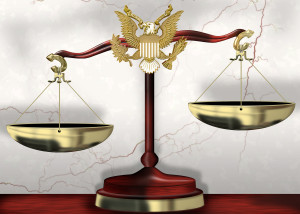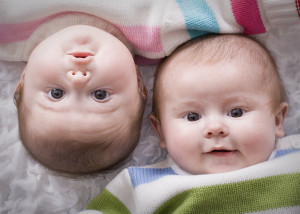Posted by Roberta Grimes • April 26, 2014 • 0 Comment
Book Reviews, Human Nature, The American Revolution, Thomas Jefferson
My mother married my father because she was pregnant. As an adult I thanked her for having gone ahead with the pregnancy and given me life, and she said, “You’re assuming I had a choice?” So I must admit to sharing the core aversion that many people have to abortion, but I am not avidly on  either side of the issue. I only note that our culture has become an abortion culture, in which the disposal of fetuses has become an easy substitute for personal responsibility and common sense.
either side of the issue. I only note that our culture has become an abortion culture, in which the disposal of fetuses has become an easy substitute for personal responsibility and common sense.
Reportedly, forty percent of pregnancies in the United States now end in abortion. Nearly thirty percent of American women will have had an abortion by the age of 45. In New York City, more than half the African-American children who are conceived are aborted. Just hold these statistics in your mind for a moment.
In the same way that you and I live in an abortion culture, Thomas and Martha Jefferson lived in a slaveholding culture. Both of them inherited slaves in a colony in which freeing them was illegal, and even in the colonies where blacks could live free, they suffered miserably as society’s dregs. That Jefferson detested slavery is abundantly clear from his contemporary writings. That he concluded that these slaves he was stuck with were better off in his care than sold of or freed seems sensible, especially given the fact that during his marriage – the period covered by My Thomas – he seems to have been hopeful that slavery could soon be ended.
A recent review of My Thomas has made me see our abortion statics in a new light. Of course, it is hard to put ourselves into the minds of those living in other cultures, but this tendency that some now have to judge slaveholders as irremediably evil and insist that those people should have known better makes me wince. This reviewer said:
“(Martha) is constantly surprised that their slaves don’t actually love them. She does come by the time of her death to outstrip Jefferson in his thinking of human rights, especially concerning slavery, yet she is never able to acknowledge even to herself that the children her slave Betty bore to her own father were, in fact, her half-siblings as much as the daughters of her two despised step-mothers.” (Here I disagree, of course. A non-judgmental read of the novel shows that the Hemingses were very much loved, which fact comes directly from historical records. )
How easy it is to judge the past! I am envisioning now a biography written in 2214 about a twenty-first-century hero who – I don’t know – won a Nobel Prize for having found a pill that prevents cancer while she simultaneously worked with UNESCO to end childhood hunger all over the world. She felt forced to have two abortions, one because she was still in college and the other because the fetus had Down Syndrome. Both were understandable and forgivable.
But unfortunately for our hero (let’s call her “Joy”), in 2173 abortions were outlawed worldwide because scientists had by then determined not only that fetuses feel pain, but that the recently-discovered human soul attaches to the fetus at conception. (Of course, by 2214 babies are desperately needed anyway, since in 2122 a cure for aging was found so now half the world’s population is over seventy and there is a desperate need for more young people to support them.)
What will Joy’s biographer say about her? How will her having done things for humanity’s health that are roughly comparable to what Thomas Jefferson did for humanity’s freedom stack up  against the fact that she not only lived in a barbaric abortion culture, but she herself had two abortions? I think you can read the above review – or read a host of contemporary comments about the fact that some Founding Fathers were slaveholders – and you already know the answer.
against the fact that she not only lived in a barbaric abortion culture, but she herself had two abortions? I think you can read the above review – or read a host of contemporary comments about the fact that some Founding Fathers were slaveholders – and you already know the answer.
It is impossible for any of us to know how future people are going to judge us. I chose abortion for this illustration, but I could as easily have chosen America’s appalling prison system, the ways in which we sexualize our children’s lives, or the horrendous way in which our society has effectively cut off for so many people the possibility of economic advancement. We don’t know what life will be like in two hundred years, so we don’t know for which of these things they will judge us. But one thing is certain. They will judge us!
As Jesus said, “Do not judge, or you too will be judged. For in the same way you judge others, you will be judged, and with the measure you use, it will be measured to you.” (MT 7:1-2). Keep that immortal wisdom in mind the next time you feel tempted to judge historical figures who were trying to make the most of their own very difficult times.
photo credit: <a href=”http://www.flickr.com/photos/donkeyhotey/7468312536/”>DonkeyHotey</a> via <a href=”http://photopin.com”>photopin</a> <a href=”http://creativecommons.org/licenses/by/2.0/”>cc</a>
photo credit: <a href=”http://www.flickr.com/photos/renawgraphy/4164575815/”>bambibabe48</a> via <a href=”http://photopin.com”>photopin</a> <a href=”http://creativecommons.org/licenses/by-nc-nd/2.0/”>cc</a>